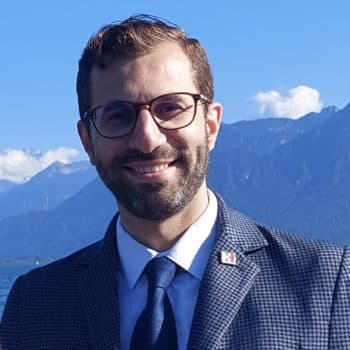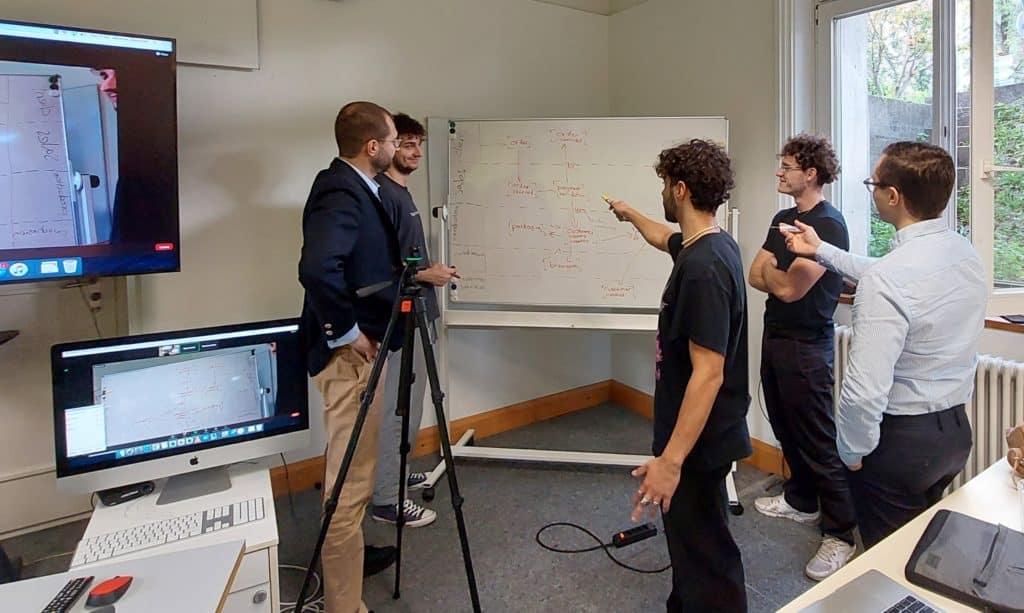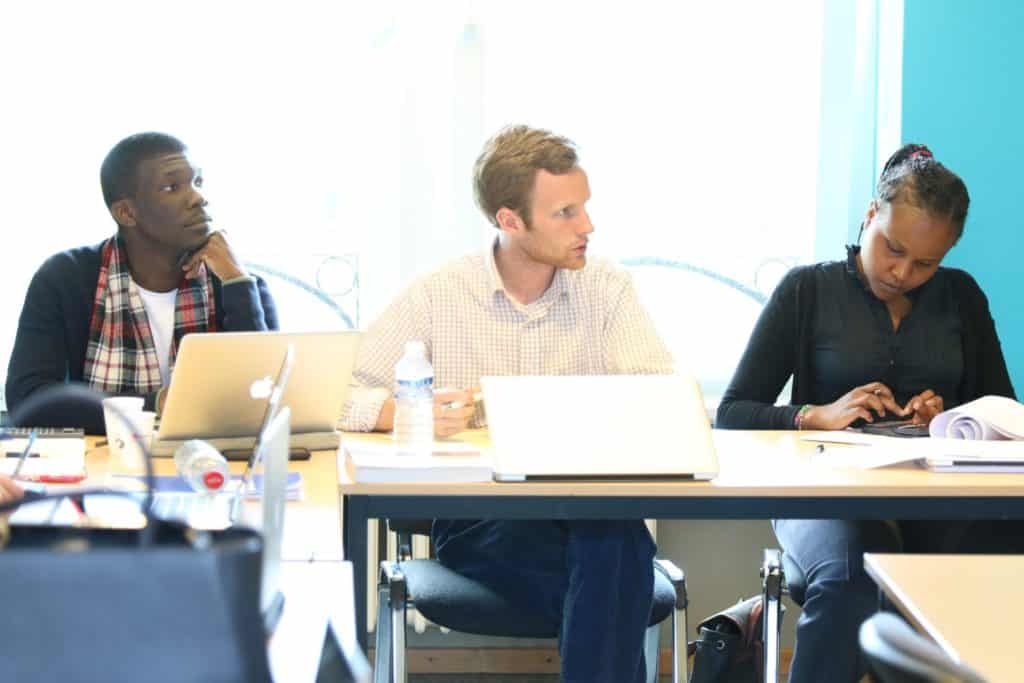
At Business School Lausanne (BSL), students benefit from expert instructors with extensive practical knowledge in their chosen fields, giving each student real-world insight. Professor Mario Saba is a BSL instructor for Management Information Systems as well as for a course on Design Thinking for both Bachelor and Masters students. He also functions as a Doctoral Supervisor, currently supervising the research for two BSL doctoral students.
When asked about his own research, he said, “I concentrate on the link between the use of new technologies and organizational performance. Within MIS, I’m interested in Artificial Intelligence, Augmented Intelligence, and I am an expert in my field of Weak Information Signals. The latest article I worked on that was published was mainly concerning Artificial and Augmented organizational knowledge.” Continue reading to discover more about Professor Saba’s latest research in developing a theory of knowledge augmentation and what it means for business transformation. The article is published in Information Systems Frontiers, a top international peer-reviewed journal, and available at: https://doi.org/10.1007/s10796-022-10352-8
Conceptualizing the Integration of Human Intuition into Artificial Knowledge
We asked Professor Saba to provide details on his latest publication, The Recursive Theory of Knowledge Augmentation: Integrating human intuition and knowledge in Artificial Intelligence to augment organizational knowledge. He explained that “Scientists and Archaeologists in France were seeking to learn more about the behavior of a prehistoric man who lived in Southern France between 600,000 and 90,000 years ago, as well as the context in which he was living. Our role was to help archaeologists and scientists from different fields transform what they know into a form of intelligence that can be explored and made useful through the fusion of artificial and human knowledge. The final aim was to understand how that prehistoric man was living.”
He mentioned the challenges to this scientific community that resulted in gaps in the information available from hundreds of thousands of years ago. “We have found a method that allows us to transfer the intuition from experts in the fields of science and archaeology into explicit and readable knowledge that can feed a system of artificial knowledge.”
“This has allowed us to cover the historical gaps because the system of artificial knowledge was programmed to be able to learn from itself,” he said. “Having the capacity to enter data coming from the intuition of experts has allowed the machine to learn and model the archaeological facts that were missing in a comprehensive way. This tells us all about what the prehistoric man was like, as well as the physical environment at the time, such as the terrain, animals, and everything that he was using to live. The final outcome is that today, you can use virtual reality to see exactly how that prehistoric man was living,” he explained.

Understanding Knowledge Augmentation for Business Transformation
Because Professor Saba is also an expert in Weak Signals, we asked him to explain how this affects companies seeking business transformation. “Weak signals are any info that can navigate through an organization,” he started. “But in most cases, the people in these organizations can’t focus on such information because they don’t have the correct lens to read them. People often use linear thinking, which is what traditional management science provides for students and entrepreneurs. However, the weak signals approach doesn’t follow linear thinking or cause-and-effect thinking. It is more systemic and holistic. In a sense, we consider all information in a company of equal importance. We collect, capture, and seek to interpret all information, then use it to induce innovation and competitive advantage in organizations.
He went on to tie this into his recently published work. “Augmented knowledge is about opening new possibilities for organizations by showing the work we have done. We say to them that based on our observations, you always need to consider the experiences of your employees and put them at the center of all processes, even though you are relying much more now than ever on technology. The good news that we are providing is that we can obtain augmented organizational knowledge by adding a layer of human-generated knowledge to machine-generating knowledge. The final word is not from the machine but rather what we do with the information that the machine gives us. As long as you know how to integrate additional human knowledge coming from human intuition into that machine-generated knowledge, then you can have an impact on your organization.”

Where the Scientific Community Stands Regarding Integrating Human Intuition and Artificial Intelligence
We wanted to know, in Professor Saba’s opinion, at what level the research remains. We asked him where the scientific community stands with being able to integrate human intuition into artificial intelligence to gain insight for business degree students. “We are in an explorative phase,” he told us of the current state of research. “We know that we will be surprised by the impact of these explorations, yet since possibilities can vary from one field to another, as scientists, we should be cautious in predicting the very exact nature or the exact outcome that these explorations will deliver. It’s like Christopher Columbus. He didn’t know in advance that he would reach what we call today America. His main mission was to explore, and if we compare ourselves to him, then we are the explorers. We found ‘America’ in this project, which was to remodel and see exactly what life was like 600,000 years ago. But we still have much to explore,” he said. “The good conclusion is that we are still open to surprises with big organizational impacts .”
Interested in learning more about our business school in Switzerland?
Contact Business School Lausanne for more information!
